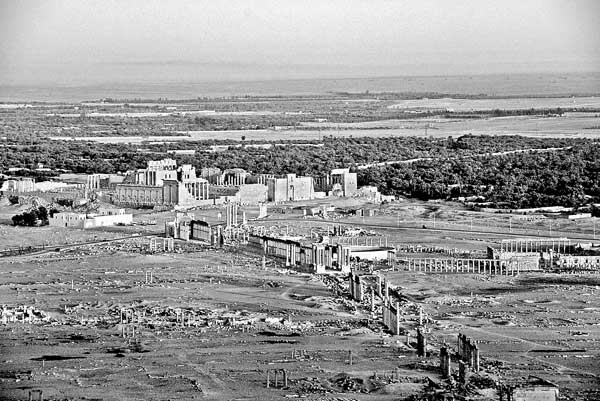Reply To:
Name - Reply Comment
Last Updated : 2024-04-18 17:22:00

.jpg)
.jpg) Palmyrah was Al-Assad’s hometown. He is regarded as a pioneer of 20th century Syrian archaeology and has worked together with international archaeological teams in Palmyrah, a 2000-year-old caravan city and one of UNESCO’s most treasured and beautiful world heritage sites. He was a world expert on the site, and co-author of Palmyrah: History, Monuments and Museum, now regarded as the definitive guide book. Among his other works is a book about Queen Zenobia, the third century BC queen of Palmyrah who dared defy the Roman empire. One of his five daughters was named after the legendary queen.
Palmyrah was Al-Assad’s hometown. He is regarded as a pioneer of 20th century Syrian archaeology and has worked together with international archaeological teams in Palmyrah, a 2000-year-old caravan city and one of UNESCO’s most treasured and beautiful world heritage sites. He was a world expert on the site, and co-author of Palmyrah: History, Monuments and Museum, now regarded as the definitive guide book. Among his other works is a book about Queen Zenobia, the third century BC queen of Palmyrah who dared defy the Roman empire. One of his five daughters was named after the legendary queen.
Add comment
Comments will be edited (grammar, spelling and slang) and authorized at the discretion of Daily Mirror online. The website also has the right not to publish selected comments.
Reply To:
Name - Reply Comment
On March 26, a couple arriving from Thailand was arrested with 88 live animal
According to villagers from Naula-Moragolla out of 105 families 80 can afford
Is the situation in Sri Lanka so grim that locals harbour hope that they coul
A recent post on social media revealed that three purple-faced langurs near t